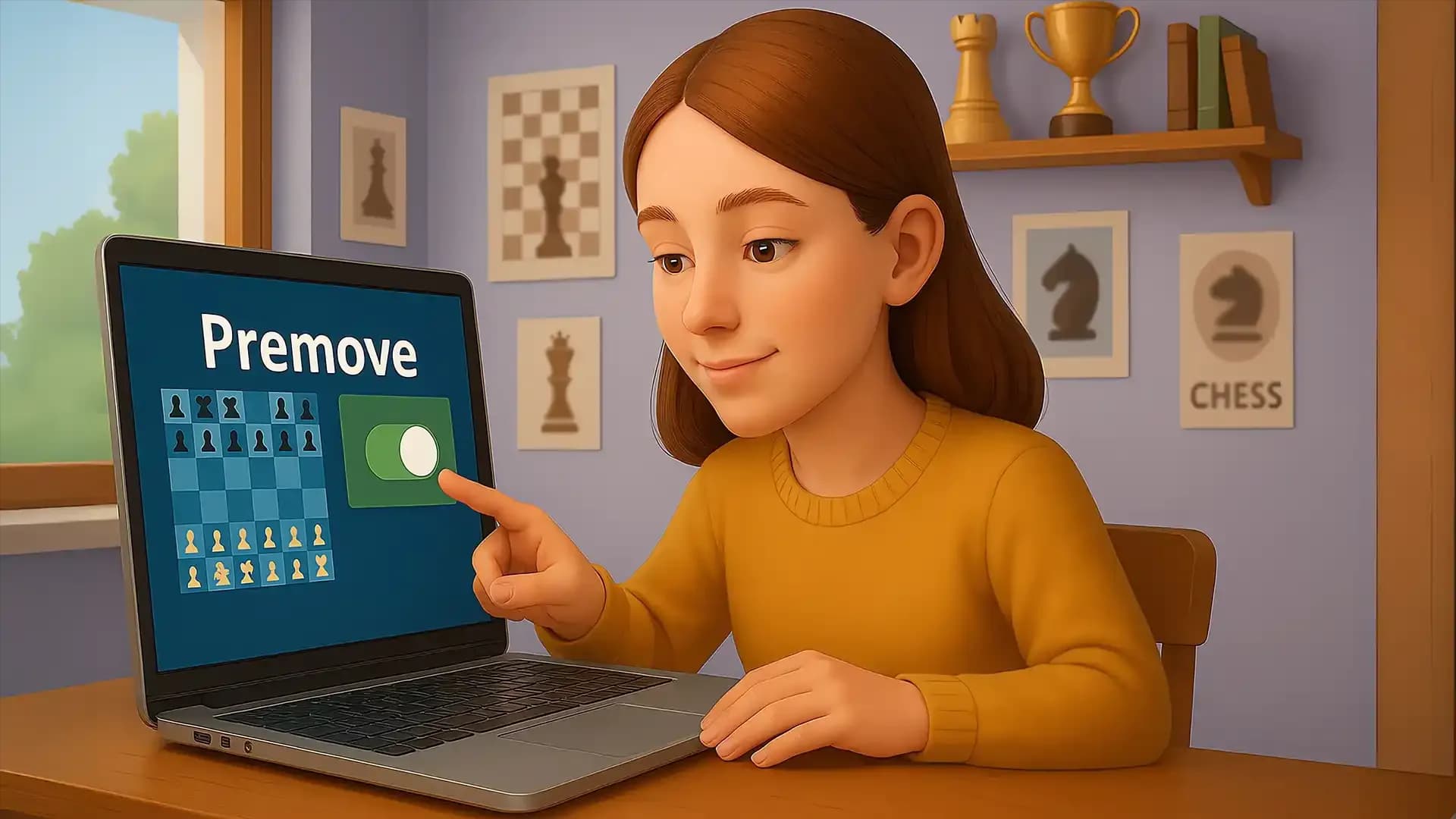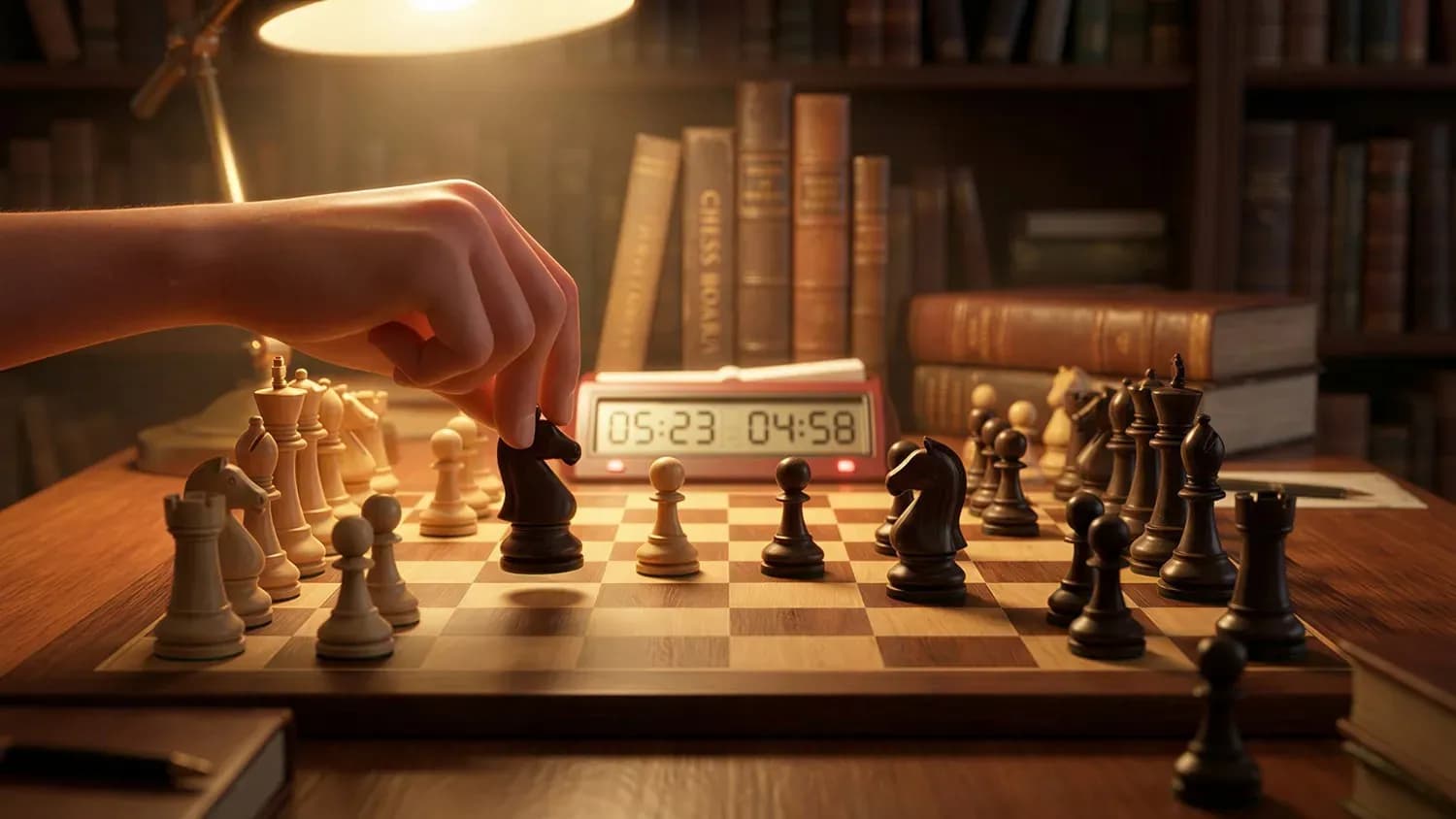Top 7 Chess Books for Beginners - Expert Recommended

8 Chess Strategies for Beginners: Essential Tips to Start Winning
Master chess basics with this beginner-friendly strategy guide. Learn key openings, piece development, and tactics to build a strong foundation.

How Chess Pieces Move: A Simple Guide for Beginners
Understand how chess pieces move with easy explanations for beginners. Learn the rules, roles, and movements of every piece on the board.

6 Chess Openings for Beginners to Start Strong
Learn simple and effective chess openings to start your game right. Perfect for beginners!

How To Get Better At Chess - Step-by-Step Guide
Discover how to get better at chess with practical strategies, exercises, and expert tips. Start improving your chess skills today and win more games.

Best Age to Learn Chess: When Should You Start?
Why 4-6-years of age is considered to be the golden age to learn chess? (and how you can too)! Expert-backed guide for all ages. Read now

If you’re just getting into chess, choosing the best chess books for beginners can make a real difference. A good chess app offers clear guidance, logical progression, along with lasting value. From Chess board set-up to grandmaster tips, these books walk you through every thing.
No matter if you’re an absolute beginner, a casual player looking to improve, or even a parent helping your child learn, these beginner chess books will provide the perfect starting point.
In this blog, we’re going to explore the top chess books recommended by experts in order to help you build a strong foundation and enjoy the game with confidence.
FAQs
- Absolute beginners would love such books as the Chess Fundamentals by Capablanca and Bobby Fischer taches chess and Chess Winning strategy by Yasser Seirawan. These books simplify rules, simple tactics, strategic thinking among others and very good basis of playing practically and quite easy to understand even in case one knows nothing about chess
- Actually, chess books and online courses serve different purposes. Books are great for deep conceptual understanding, slow learning, and flexible study. On the other hand, online courses offer interactive lessons, exercises along with immediate feedback. When you combine both strategically, this will provide you with the best results: books for theory, courses for practice, and visualization.
- Consistency truly matters more than duration. Spending 30-60 minutes on a daily basis reading and practicing examples is great. Focus on understanding concepts, solving exercises, and applying them in your games. Avoid rushing through chapters; depth of understanding is far more valuable than speed at this stage.
- Yes, even children can learn chess from the special books aimed for young chess players, such as “Chess for Kids” by Murray Chandler, or chess-themed books with puzzles. By combining books with interactive play, it reinforces concepts, makes learning fun, and enhances their tactical and strategic skills gradually.
- It’s actually best to finish a chess book before moving to the next. Fully understanding concepts, practicing exercises, and applying lessons in games always ensures a strong foundation. If you switch books mid-way, it can lead to confusion and gaps in learning, and slow down your overall improvement.

8 Chess Strategies for Beginners: Essential Tips to Start Winning
Master chess basics with this beginner-friendly strategy guide. Learn key openings, piece development, and tactics to build a strong foundation.

How Chess Pieces Move: A Simple Guide for Beginners
Understand how chess pieces move with easy explanations for beginners. Learn the rules, roles, and movements of every piece on the board.

6 Chess Openings for Beginners to Start Strong
Learn simple and effective chess openings to start your game right. Perfect for beginners!

How To Get Better At Chess - Step-by-Step Guide
Discover how to get better at chess with practical strategies, exercises, and expert tips. Start improving your chess skills today and win more games.

Best Age to Learn Chess: When Should You Start?
Why 4-6-years of age is considered to be the golden age to learn chess? (and how you can too)! Expert-backed guide for all ages. Read now






